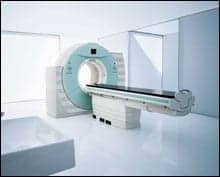ECRI, an independent patient safety organization, has issued a release urging the Environment Protection Agency (EPA) to reconsider the timing of their proposed remediation of ethylene oxide (EtO) emissions from sterilization plants. The rushed schedule, ECRI posits, could create widespread shortages of sterile medical devices and delay patient care. Nearly 95% of all surgical kits used in the United States are reportedly sterilized using EtO.
“The aggressive 18-month schedule proposed by the EPA could have serious and deadly consequences for patients,” says Marcus Schabacker, MD, PhD, president and CEO, ECRI. “The United States healthcare system is still challenged with supply chain shortages caused by the pandemic and this rush to abate EtO emissions by commercial sterilization facilities in an abbreviated timeframe could further compound the problem.”
According to the FDA, nearly half of all medical devices made requiring sterilization before sale undergo EtO sterilization. There are about 400,000 unique products, that in aggregate, account for the 20 billion medical devices EtO sterilized annually in the US.
Providers may not be able to get the critical medical supplies they need to perform procedures while the emission remediation efforts are underway, cautions ECRI. “Delayed care poses serious risks to critically ill patients and our nation’s most vulnerable populations,” says Schabacker.
While ECRI is in support of EPA’s goal to reduce harmful emissions and improve the safety of communities located near the commercial sterilizers, “we aren’t confident that the agency fully understands the near-term impact that this proposal and its aggressive schedule could have on patient care,” Schabacker adds.
For more than 50 years, the medical device industry has relied on ethylene oxide to sterilize temperature- and moisture-sensitive disposable medical devices, such as syringes, IV bags, and wound dressings, and lifesaving devices, such as stents and catheters. These medical device materials and packaging were developed for EtO sterilization. ECRI says it knows of no safe alternative commercial sterilization methods that could immediately replace EtO at this time.





